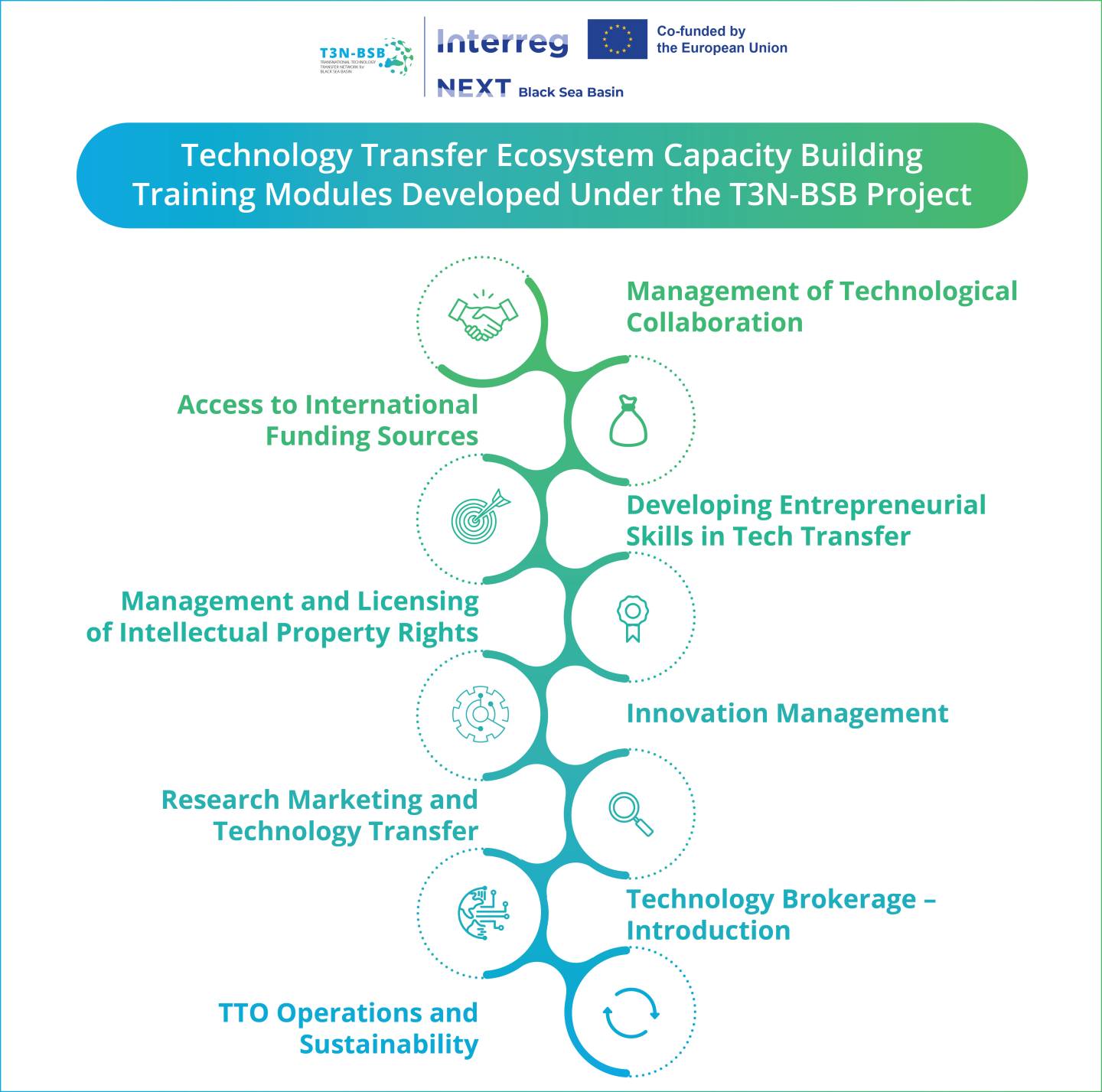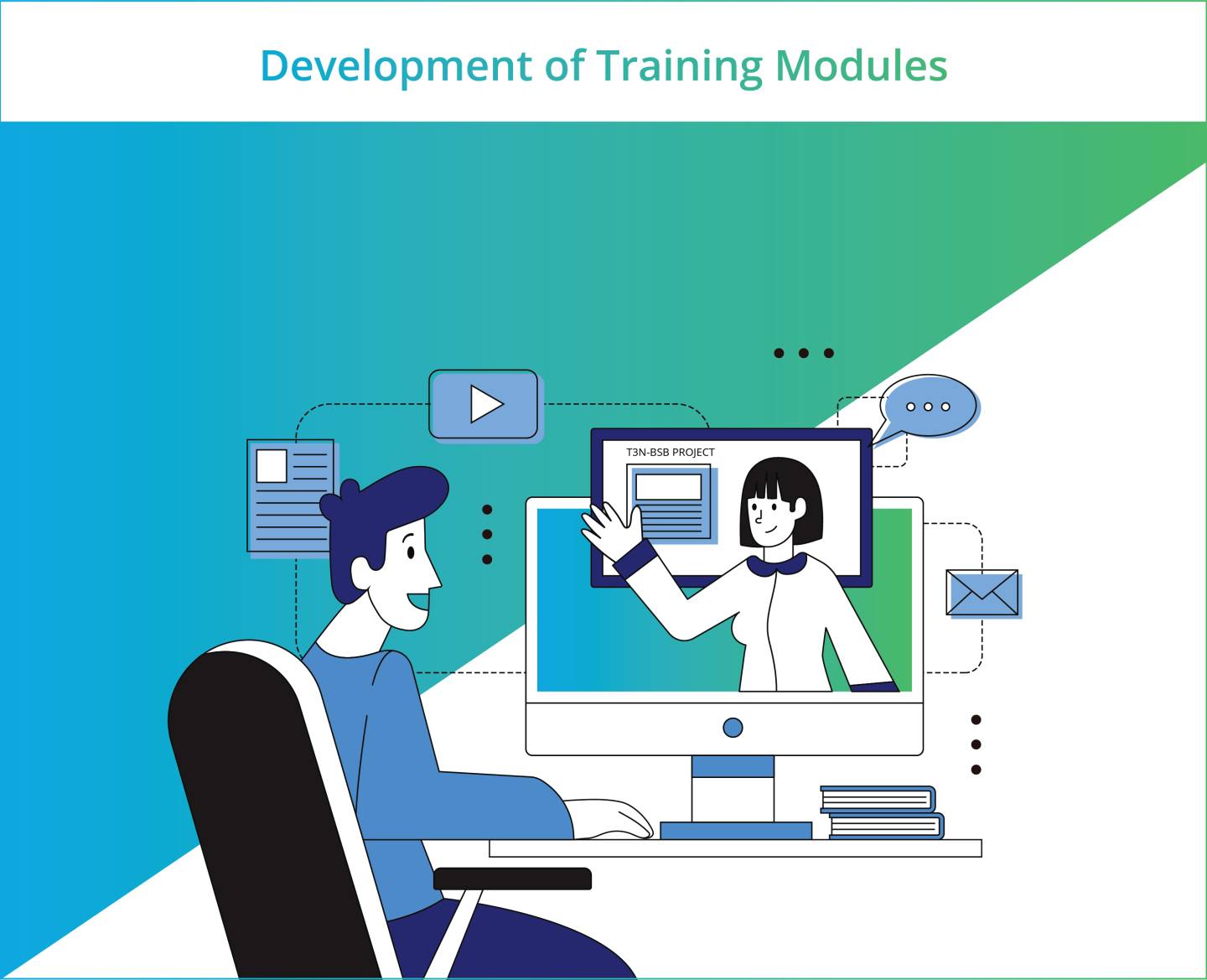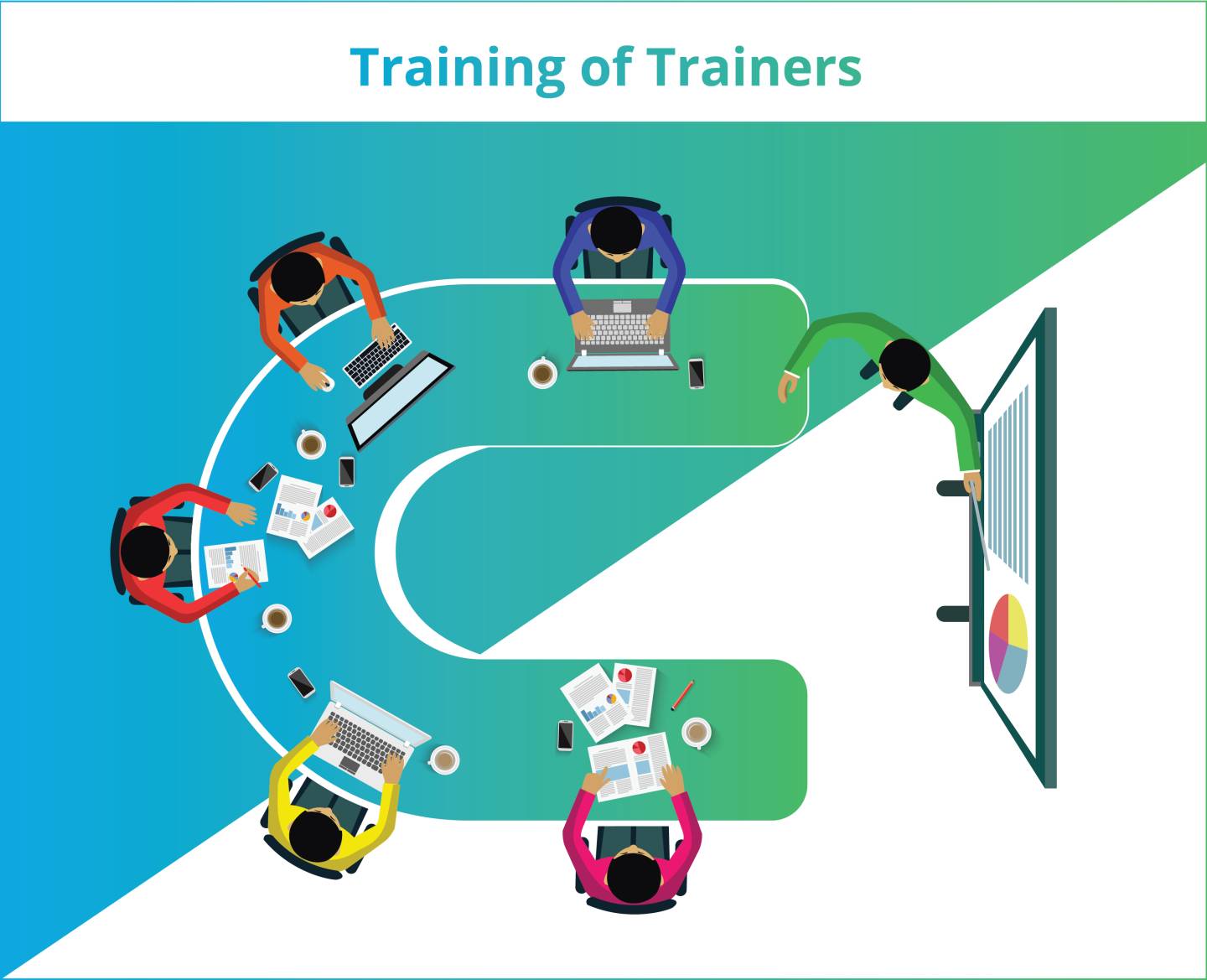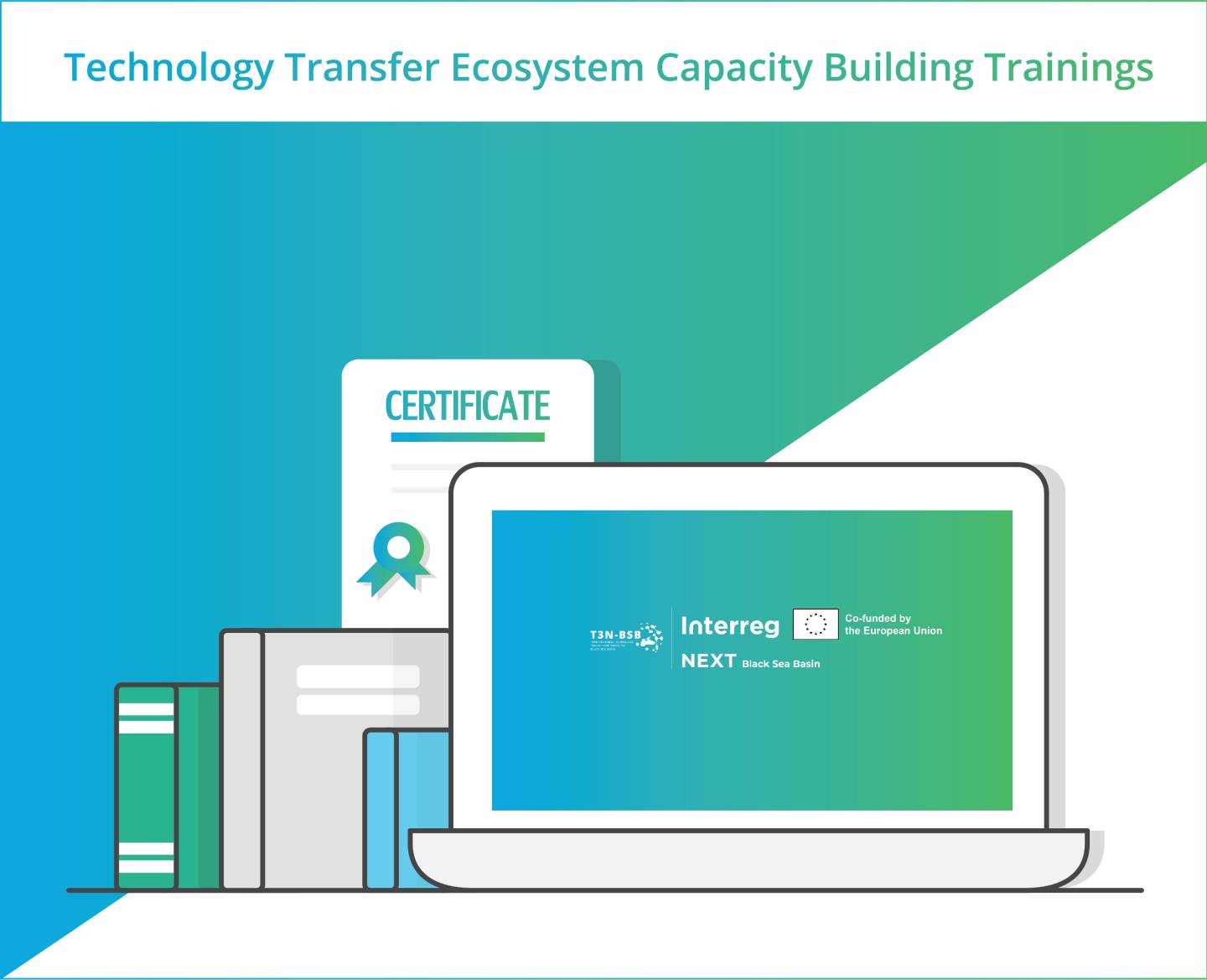''Technology Transfer Ecosystem Capacity Building Activities'' Successfully Completed Under the T3N-BSB Project
Within the scope of the ‘Transnational Technology Transfer Network for the Black Sea Basin (T3N-BSB)’ project, supported under ‘Interreg VI-B NEXT Black Sea Basin’ Programme, ‘Technology Transfer Ecosystem Capacity Building Activities’ carried out with the contribution of all project partners.
The project, led by Karadeniz Technical University Technology Transfer Application and Research Centre (KTU TTC) and in partnership with ‘Centre for Research and Technology Hellas (CERTH)’ from Greece, ‘Bulgarian Association for Transfer of Technology and Innovation (BATTI)’ from Bulgaria, and ‘Dunarea de Jos University of Galati (UDJG)’ from Romania, aims to establish sustainable transnational networks in the Black Sea Basin and to develop the research, innovation and advanced technology adoption capacities of participating countries.
Within the scope of the ‘Technology Transfer Ecosystem Capacity Building Activities’, a set of Technology Transfer Ecosystem Capacity Building Training Modules has been developed to provide target groups (TTO staff, researchers, industry representatives, entrepreneurs, clusters, etc.) with the basic competencies necessary for the effective implementation of technology transfer (TT) processes.

Educational modules, developed in collaboration of the consortium, were created with the aim of:
The activity was carried out in three complementary phases aimed at developing the capacity of the technology transfer ecosystem as follows:
1. Phase - Development of Training Modules:

The ‘Technology Transfer Ecosystem Capacity Building Training Modules’ were developed with the joint contribution of the four project partners in the consortium.
These training modules are designed to equip actors actively involved in technology transfer, innovation, and entrepreneurship ecosystem (TTO staff, researchers, industry representatives, entrepreneurs, business support organizations, clusters, etc.) with strategic competencies.
Training modules, that will provide the target audience with a comprehensive overview of the technology transfer process, aim to develop knowledge and skills in processes such as effective management of technological collaborations, creation of sustainable TT activities, management of intellectual property rights, commercialization of research outputs, innovation management, access to international funding opportunities, entrepreneurship and incorporation.
In this context, the training topics tailored to the needs of the target group are listed below:
Click here to access the English and Turkish versions of the training modules.
2. Phase - Training of Trainers

In order to implement the developed training programme, covering a total of eight training modules, a ‘Training of Trainers’ event was organized in June 2025 with the participation of experts from the project partners.
Along with these training programmes, trainers have been equipped with the necessary skills to effectively convey the content to the target groups.
The ‘Training of Trainers’ activity aimed to develop the knowledge and skills of personnel specializing in technology transfer processes, facilitate the transfer of experience and expertise between partner institutions, and contribute to the individual and institutional development of participants by explaining the methods and techniques used in the processes of different institutions.
Click here for the news of the related event.
3. Phase - Technology Transfer Ecosystem Capacity Building Pilot trainings:

Following the completion of the ‘Training of Trainers’ programme, online ‘Pilot Training Events’ were organized with the participation of the target group involved in TT processes in the project partner countries, with the aim of sharing and disseminating information and providing the basic skills necessary for technology transfer processes.
A total of 167 participants attended the ‘Technology Transfer Ecosystem Capacity Building Pilot Trainings’ held in Türkiye, Greece, Bulgaria and Romania, comprising a total of four separate events and covering eight modules developed within the scope of the project.
At the end of the trainings held in July 2025, an exam was applied to measure the knowledge level of the participants, and participants who achieved 90% success were awarded consortium-approved certificates.
Click here for the news of the related event.
01 August 2025